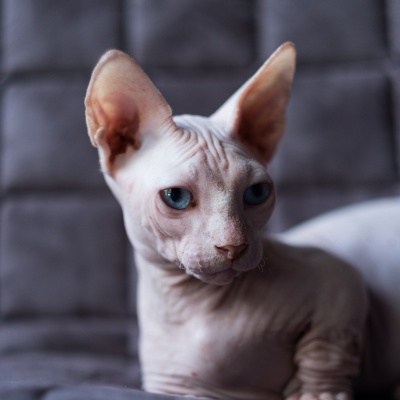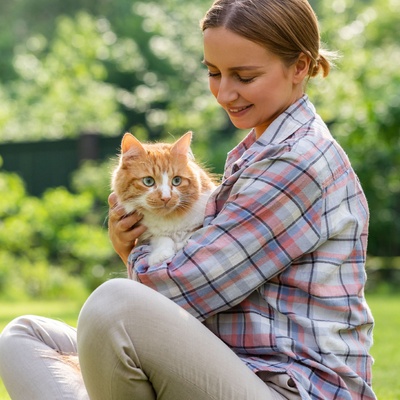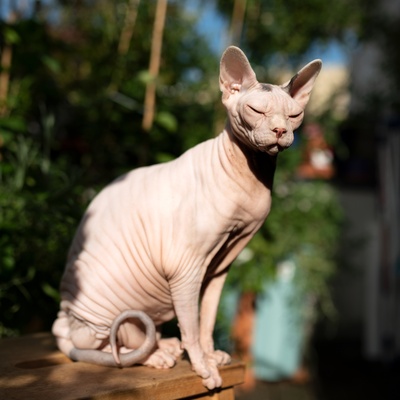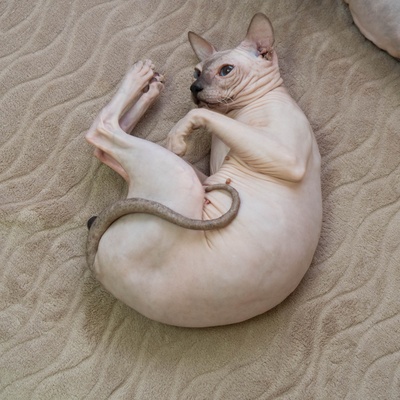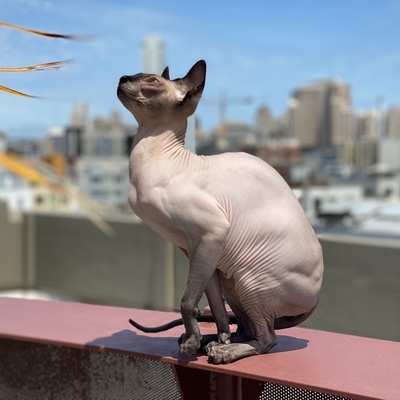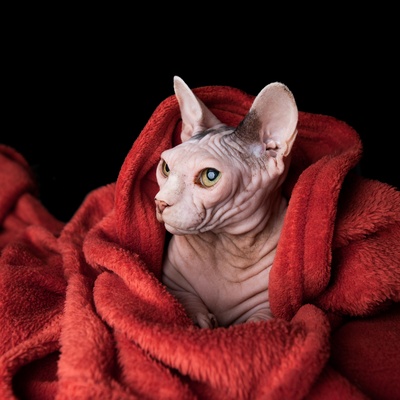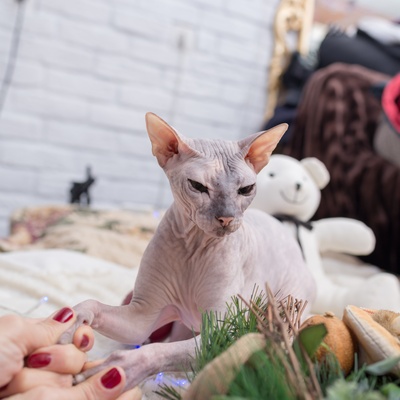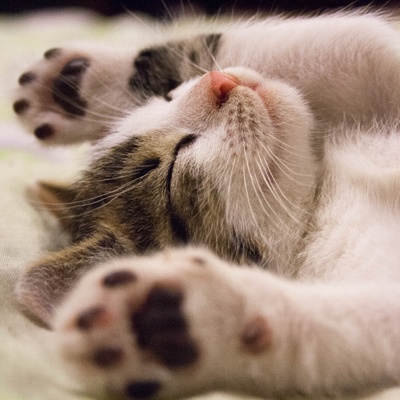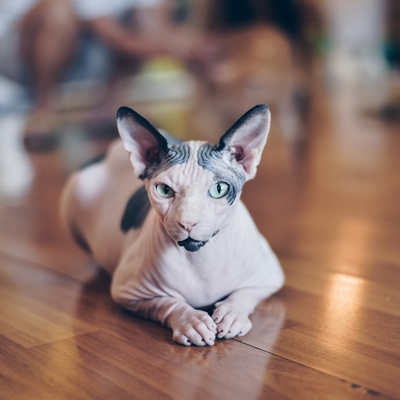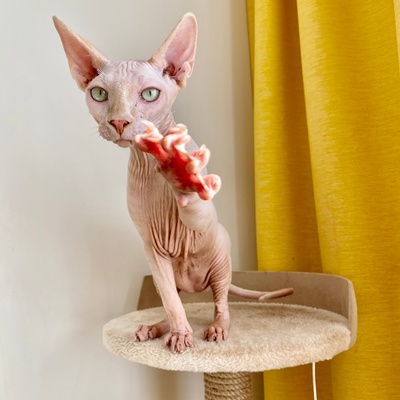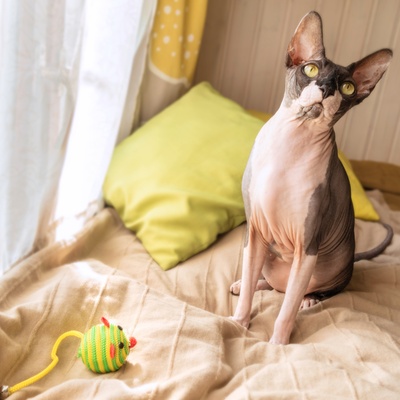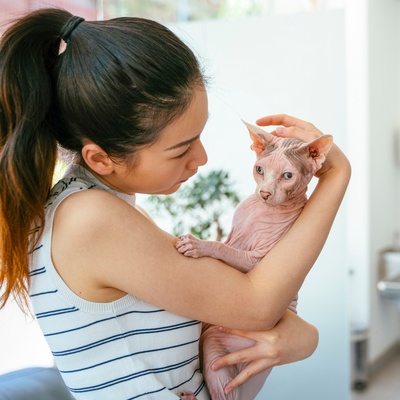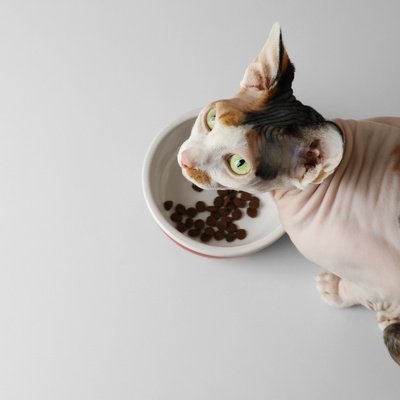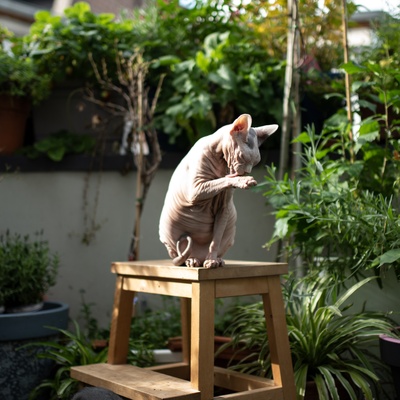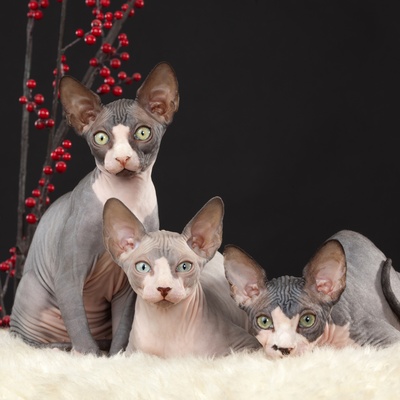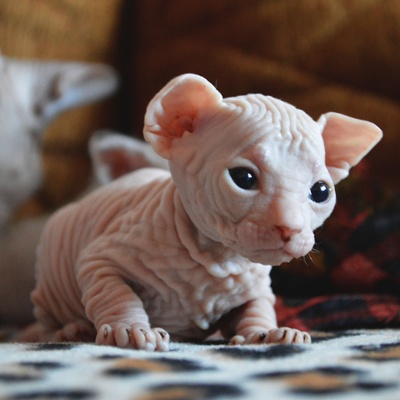Introducing the Donskoy Cat
Find out everything you need to know about the Donskoy cat: its characteristics, behavior, training, and cost.
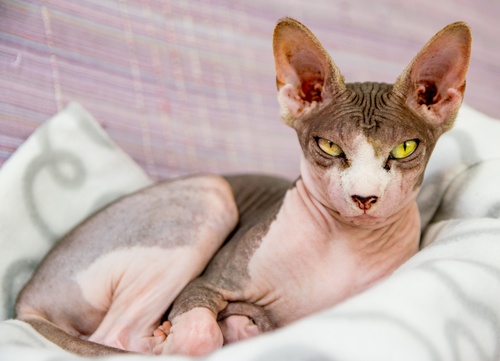
Find out everything you need to know about the Donskoy cat: its characteristics, behavior, training, and cost.
The Donskoy cat, originating from Russia, is known for its unique hairless appearance This breed started from a spontaneous mutation in 1987.
With smooth, hairless skin in various textures and colors, Donskoy cats are unique. They are active, playful, calm and form strong bonds with their owners.
Owning a Donskoy cat brings joy and companionship.
This selection outlines the unique features of the Donskoy breed of cat.
The Donskoy cat is a medium-sized breed. It typically stands around 8 to 10 inches tall and weighs between 6 to 12 pounds.
The Donskoy cat has a hairless coat due to a dominant gene, resulting in smooth, soft skin that varies in texture and color.
Donskoy cats are hypoallergenic, making them an ideal choice for people with allergies.
While the Donskoy cat is hairless, its skin can display various colors, including blue, black, red, and cream, with possible shades within these colors.
The Donskoy cat adapts best to indoor environments where its sensitive skin can be protected from extreme temperatures.
The Donskoy cat is friendly and sociable, forming strong bonds with its owners and getting along well with children and other pets.
Donskoy cats are generally healthy, though they may be prone to skin conditions and dental issues common to hairless breeds.
The Donskoy cat has a friendly and affectionate temperament. They are relatively easy to train with patience and kindness, responding well to positive reinforcement.
We can help!
Every cat has its own character, and so do you. Making the right choice will ensure their well-being and yours.
Take our quiz to find out which breed is right for you, based on your personality, lifestyle, location and many other criteria.
Don't wait any longer and take the quiz to find out the answer!
The Donskoy cat is a very unusual looking cat. Its smooth, hairless skin gives it a unique, almost alien-like appearance, setting it apart from other breeds.
The Donskoy cat is a medium-sized breed. On average, it stands around 8 to 10 inches tall and weighs between 6 to 12 pounds, with males generally being heavier than females. Males can weigh up to 12 pounds, while females typically weigh between 6 and 9 pounds.
Donskoy cats are slow growers, reaching their final size and weight around 3-4 years of age. They have a broad frame, muscular build, and a long, slender tail, adding to their distinctive and elegant appearance.
The Donskoy cat has a distinctive coat type. Unlike most cat breeds, the Donskoy is known for its hairlessness. However, their skin can have a soft, smooth texture with varying degrees of hairlessness. Some Donskoy cats may have light fuzz or patchy hair, which can be wavy or slightly curly, giving them a unique and intriguing appearance.
The Donskoy cat's skin can display a variety of colors and patterns. Common color palettes include blue, black, red, and cream, with variations within these shades. This diversity in skin color adds to the breed's exotic and unique look.
The Donskoy cat stands out not just for its hairless skin but also for its elegant and distinctive physical features. This medium-sized breed has a muscular build and a sleek, elongated body that gives it a graceful and unique gait. The ears of the Donskoy are large, wide at the base, and taper to a rounded tip, adding to its alert and expressive appearance.
The body structure of the Donskoy is robust yet flexible, with a prominent rib-cage and well-defined muscles. The breed's muzzle is short and rounded, complementing its overall facial structure. The eyes are almond-shaped, large, and expressive, coming in various colors such as green, blue, and gold. All these physical characteristics make the Donskoy cat a truly unique and remarkable breed.
The Donskoy cat is affectionate and sociable, making it a wonderful companion for families.
Donskoy cats are known for their friendly and sociable nature. They form strong bonds with their owners and enjoy being close to them, often following them from room to room. These cats require a lot of attention and thrive on interaction, making them ideal pets for those who can provide ample time and affection. Donskoy cats are playful and enjoy extended cuddle time, showing their affectionate side with various vocalizations like throaty cries, purrs, and meows. Having an owner who is present and willing to engage with them is crucial for their happiness.
Donskoy cats are gentle and patient, making them well-suited for families with children and other pets. They are generally calm and passive, enjoying the company of their human family members. When their tolerance threshold is reached, they do not exhibit aggressive behavior but prefer to isolate themselves to relax. This breed's compatibility with families, children, dogs, and other cats emphasizes its sociable and adaptable nature.
Choosing a cat that matches your personality and lifestyle will ensure your well-being and his!
The Donskoy cat is highly adaptable to different living environments, making it suitable for both apartments and larger homes. This breed thrives on the presence of its owner and enjoys being in close proximity to them. The best living situation for a Donskoy cat is one where it has access to warm, cozy spots and interactive play areas. Although they do not require vast spaces, they do benefit from having enough room to explore and engage in physical activity.
The Donskoy cat is an engaging and energetic companion, known for its playful nature. These cats have a high need for mental and physical stimulation, so providing them with toys and activities that challenge their intelligence and keep them active is crucial. Playing with their owners not only keeps them entertained but also strengthens their bond and improves their overall well-being. Without enough stimulation, Donskoy cats can become bored, which may lead to destructive behaviors. It is also important to provide quiet and comfortable spaces where they can rest and recharge.
Training your Donskoy cat should begin as early as possible to ensure they develop good behaviors and social skills. Education for this breed should be based on principles of kindness, listening, reward, and firmness. Consistency is key in reinforcing positive behaviors from the start. Training through play is particularly effective for the Donskoy cat, as it not only helps with mental stimulation but also prevents the development of undesirable behaviors. This approach makes training a fun and rewarding experience for both the cat and its owner.
The Donskoy cat is an affectionate and resilient breed, known for its robustness and good overall health. Generally, Donskoy cats do not present specific health problems, making them a hardy and easy-to-care-for pet.
The Donskoy cat is a robust breed, typically healthy and rarely falling ill. However, like many other cat breeds, they may be prone to certain hereditary diseases such as feline hypertrophic cardiomyopathy and polycystic kidney disease. Owners can opt for DNA testing to detect these diseases early and prevent their transmission.
Routine visits to the veterinarian are essential to keep the Donskoy cat in good health. Regular check-ups and vaccinations against common diseases such as typhus and rabies are crucial for maintaining their well-being.
The Donskoy cat, with its medium size and muscular build, requires a high-quality diet to maintain its health and physique. A nutritionally rich kibble is recommended as the dietary base for the Donskoy cat. Adding green vegetables rich in water can complement the kibble and support the cat's renal system, ensuring overall well-being.
The Donskoy cat grows at a moderate pace, typically reaching full size around 3-4 years of age. Due to its specific growth patterns, the diet of a Donskoy cat must be carefully controlled and adapted. Maintaining the same brand of kibble ensures dietary continuity, which is crucial for their digestive health. Feeding the cat at set times helps avoid any disruptions to their digestive system and supports their steady growth.
While the Donskoy cat is generally active and playful, it can have a tendency to gain weight if its diet is not properly controlled and if it does not get enough exercise. Ensuring that the Donskoy cat engages in regular physical activities such as playing, running, and jumping is essential to prevent weight-related health issues. Owners are encouraged to interact and play with their Donskoy cat regularly, providing fun and stimulating sessions that promote health and prevent obesity.
The Donskoy cat is a unique and appreciated breed, valued for its distinctive hairless appearance and affectionate nature. There are several breeders specializing in Donskoy cats. It is important to consider a few factors before adoption.
Purebred cats like the Donskoy are often bred by professional breeders or in catteries. Visiting the breeding sites before adopting a Donskoy cat is crucial to observe the living conditions and ensure their quality. Starting from June 10, 2024, owners must have their cat microchipped by the age of 20 weeks and register its details in a relevant database such as Petlog or Animal Tracker. This is a legal requirement in Britain, and failure to comply could result in a fine of
. Health examinations and DNA tests performed on the cat and its parents are important to detect possible hereditary health problems.
The cost of acquiring a Donskoy cat can vary depending on several factors. The price can be influenced by the cat's lineage, pedigree, the reputation of the breeder, and the age of the cat. On average, acquiring a Donskoy kitten can range from
to
though this can vary. Maintaining a Donskoy cat involves ongoing costs, estimated to be around
to
per year. This includes expenses for food, healthcare, grooming, and other necessities.
Adopting a Donskoy cat is a long-term commitment, as they can live for many years. It's important to be prepared for the financial and emotional responsibilities that come with bringing this unique and loving breed into your home.
Choosing a cat that matches your personality and lifestyle will ensure your well-being and his!
To access the most relevant information, suitable payment methods, and delivery in your region, please select the website corresponding to your country.
